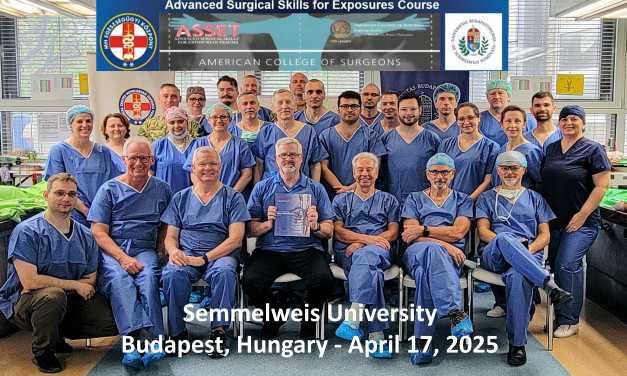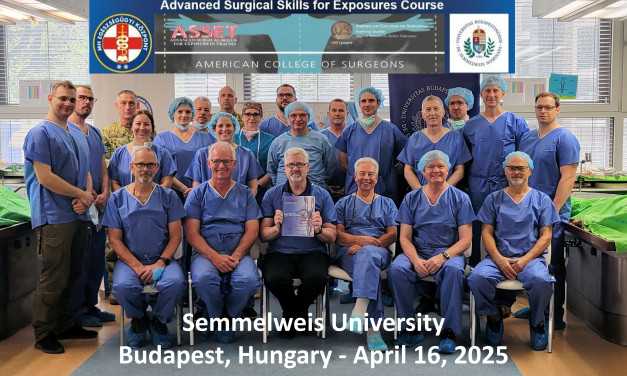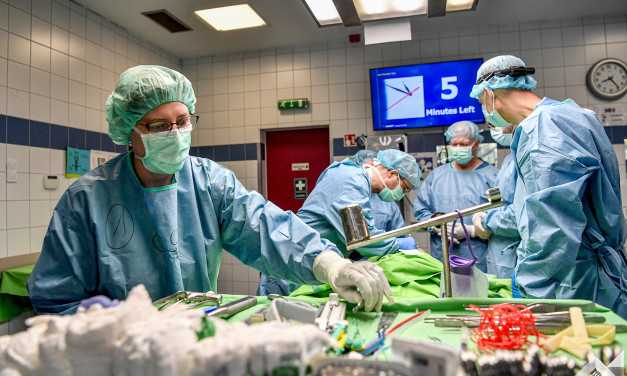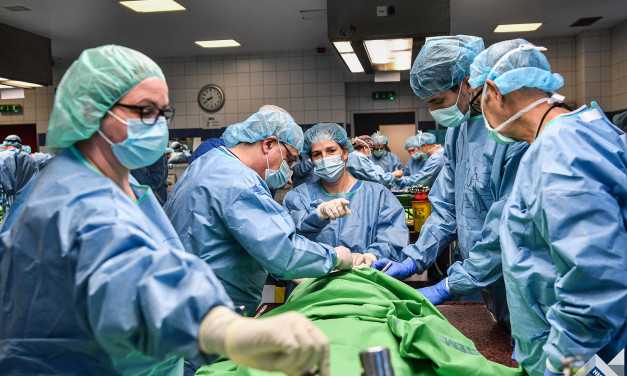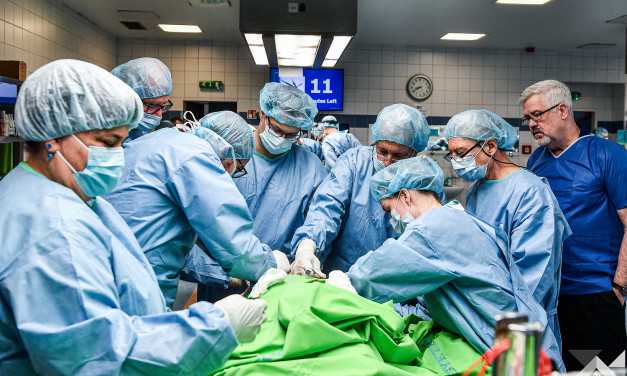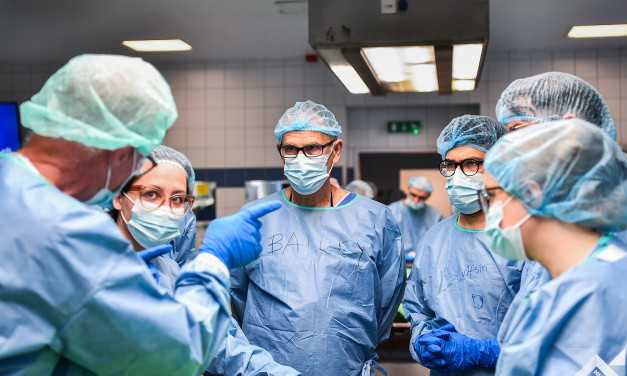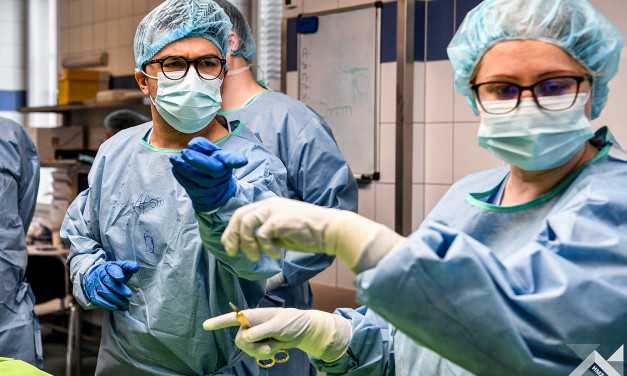Unique trauma surgical training on the threshold of NATO certification
Multinational surgical training course held at the Department of Pathology, Forensic and Insurance Medicine of Semmelweis University
Text: Márton Mészáros Navarrai | Photo: Tünde Rácz | 14:39 May 6, 2025A multinational group of civilian and military doctors, as well as perioperative assistants participated in the course based on American traumatology and battlefield lessons learned that was held with the title “Advanced Surgical Skills for Exposure in Trauma” (ASSET) at the Department of Pathology, Forensic and Insurance Medicine of Semmelweis University in Budapest on 16-17 April.
The objective of the course is to help the participants acquire professional techniques used in exploring and treating serious life-threatening injuries with special regard to traumas occurring in war and disaster situations.
The ASSET training course was developed by the Chicago-based American College of Surgeons (ACS) founded in 1913, and was organized for the first time in 2010 – told us on the spot Colonel Dr. Péter Vekszler (MD), Deputy Commander for International Affairs, Hungarian Defence Forces Medical Center (HDF MC). He added that the one-day training was first organized in Budapest three years ago in the cooperation of the HDF Medical Center and the Department of Pathology, Forensic and Insurance Medicine of Semmelweis University.
Colonel Péter Vekszler said that the reason why civilian doctors and perioperative assistants are also enrolled in the course besides military surgeons is that the skills they can acquire here may be used not only in the areas of military operations but also in the field of civilian health care. As he said, the kind of technological or human resource background that is characteristic of a well-equipped trauma center in peacetime is often not available in a wartime environment. “On such occasions, the one or two surgeon(s) standing beside the operating table bear responsibility for saving the patient’s life with the intervention” – he pointed out, adding that situations like this may also occur under civilian circumstances, for example when an injured person is taken to a low-level-care hospital due to certain circumstances such as their condition, the characteristics of their injuries or objective factors such as visibility conditions or the impossibility of air transport. In such cases, saving the patient’s life is the responsibility of the doctors on duty there – added he, in evaluating the practical value of the ASSET course.
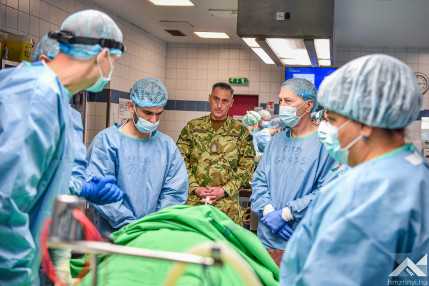
The HDF Medical Center has started the NATO certification process of the ASSET course in accordance with the relevant procedures – said Colonel Dr. Péter Vekszler. He added that during the process, they would request professional support also from the Budapest-based NATO Centre of Excellence for Military Medicine (NATO MILMED COE). “This training is available all around the world, however, it is currently only Hungary that organizes these courses in the Central European region, in our immediate environment” – he told us. He pointed out that he considers it important that the ASSET course should gain international recognition similar to the Advanced Trauma Life Support (ATLS) postgraduate course dealing with the care of the injured. He underlined that “In contrast to the just mentioned course, the ASSET basically places emphasis on another area, namely the preparations for surgical interventions and the support of surgical decisions”.
“This training, which started three years ago, has outstanding importance to the Hungarian Defence Forces because it strengthens the relationship between the civilian world and the world of military medicine, and contributes to the further training of specialists working in the military. Besides, the skills acquired on the course may play a direct role in saving the lives of Hungarian citizens in an emergency” – said the deputy commander.
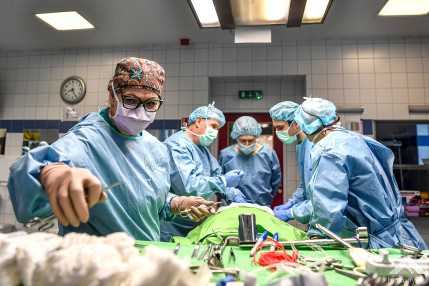
U.S. Professor of Surgery Dr. Mark Bowyer (MD), the director of the multinational medical course has already held lectures and supervised practical training related to the care of trauma patients while taking the ASSET course to 29 different countries. He told us that surgeons around the world need to know how to take care of traumatically injured patients not only in civilian life but also in wartime. The internationally recognized trauma and combat surgeon pointed out that the greatest benefit of the course is that it helps the participants with learning such interventions that they make less frequently in their everyday routine. At present, the course teaches about 35 life-and limb-saving procedures.
The Department of Pathology, Forensic and Insurance Medicine of Semmelweis University specifically aims at providing the kind of teaching background for the training of doctors and the further training of specialists that promotes the development of clinical practice – said Pathologist Prof. Dr. András Kiss (MD), the director of the department. He added that these surgical procedures directly contribute to the more professional care of living patients, and therefore they considered it important to join the course delegated to Hungary by the Uniformed Services University of the Health Sciences of the U.S. federal government (USUHS). He pointed out that the instructors leading the ASSET course are renowned foreign trauma surgeons with significant experience in medical interventions made in military and NATO forces.
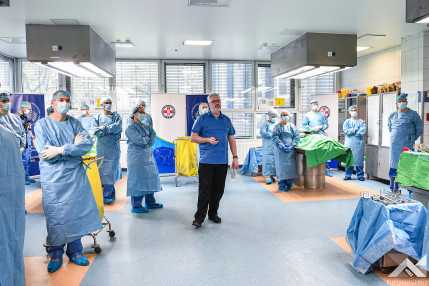
Another ally in civil-military health care
“By offering opportunities like the ASSET and ASSET Plus courses, the National Medical Innovation Training Center (NOIKK) of Semmelweis University – which is scheduled to open in 2026 – and the Department of Pathology, Forensic and Insurance Medicine intend to promote Hungarian and international medical training in the future in the most effective and modern form possible. According to plans, the courses of some training programs involving civilians and military personnel will provide them with the opportunity to professionally learn robotic surgery as well” – said Prof. Dr. András Kiss (MD), Director, Department of Pathology, Forensic and Insurance Medicine. He added that he considers the civil-military medical cooperation to be complex and thriving.
Multinational surgical training
